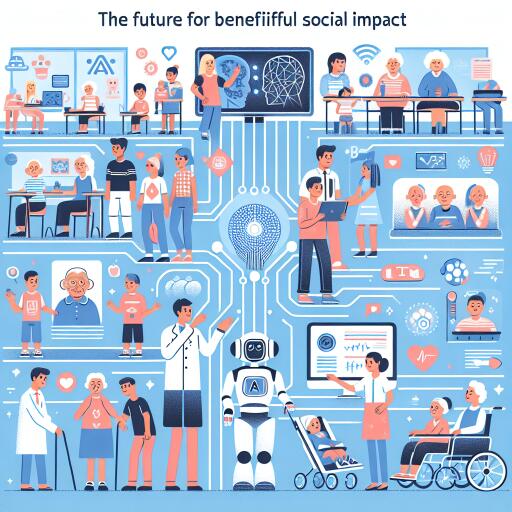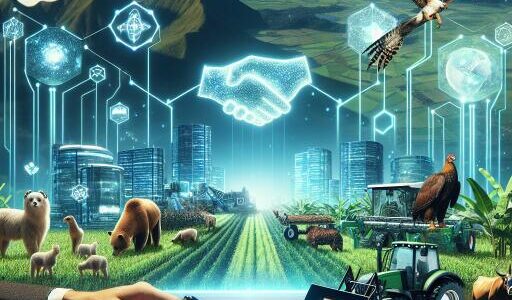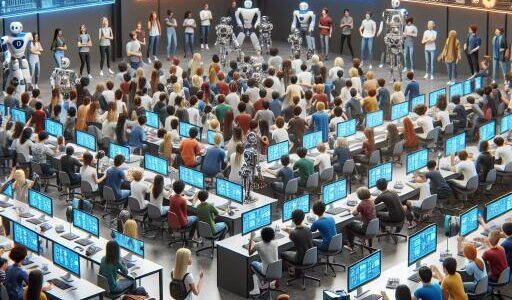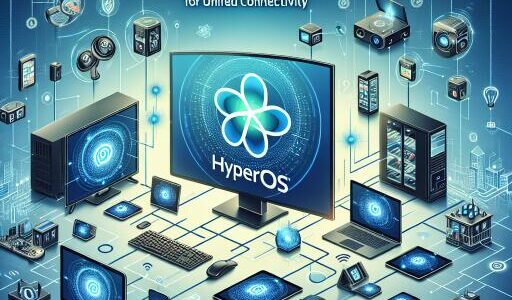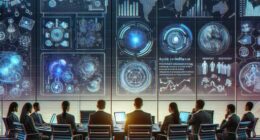The Way Forward for Artificial Intelligence to Make It a Social Good
As the global community strives towards achieving the Sustainable Development Goals (SDGs), the synergy between artificial intelligence (AI) and these goals presents an unprecedented opportunity for social advancement. This exploration delves into the multifaceted ways in which AI can serve as a catalyst for social good, addressing challenges from poverty eradication to enhancing sustainable agricultural practices, health care improvements, education innovation, smart energy usage, and beyond.
Combatting Poverty and Hunger with AI
In regions where access to comprehensive census data is a challenge, AI models are revolutionizing the way socioeconomic levels and poverty rates are measured. By analyzing satellite imagery and digital transaction data, AI technologies provide invaluable insights for tailoring and optimizing poverty alleviation initiatives. Moreover, AI’s role in forecasting food demands and crop yields in disaster-stricken areas demonstrates its potential in combating hunger and ensuring food security through innovative solutions like precision and smart agriculture.
Revolutionizing Health Care
The integration of AI in health care is redefining the sector by speeding up the development of effective treatments, assisting in clinical decisions, and supporting public health policies. From diagnosing diseases with improved accuracy to personalized medicine through data analysis from wearable devices, AI is set to transform the healthcare landscape. The predictive power of AI also offers a pathway to preventive medicine, leveraging genomic and environmental data for better health outcomes.
Transforming Education Through AI
Artificial Intelligence is poised to radically personalize learning, shifting from a traditional one-size-fits-all model to a bespoke educational experience for each student. Through intelligent tutoring systems and interactive educational interfaces, AI caters to diverse learner needs, ensuring inclusive education. Despite its potential, the ethical implications of AI in education, including privacy concerns and the potential for bias, call for cautious and considered implementation.
Enabling Smart and Sustainable Energy Use
AI technologies are at the forefront of creating efficient energy systems, especially in renewable energy sectors and smart grid management. Predictive analytics and autonomous robots are improving the maintenance, operation, and safety of energy facilities. However, the role of AI in enhancing energy efficiency goes beyond operational tweaks; it’s about fundamentally reshaping energy production and consumption to be more sustainable and environmentally friendly.
Building the Foundations of Smart Cities
The concept of smart cities leverages AI to optimize energy consumption, reduce waste, and improve urban planning and public safety. By analyzing vast amounts of data from IoT devices, AI helps make cities more livable and sustainable. Intelligent transportation systems, powered by AI, promise safer, more efficient public transport, and better traffic management, marking a significant step towards reducing the urban carbon footprint.
Enhancing Manufacturing and Consumption Sustainability
In the realm of manufacturing, AI-driven systems are key to minimizing energy use, predicting demand, and improving supply chain efficiency. Similarly, AI technologies are reshaping consumer behavior towards more sustainable practices by analyzing and influencing consumption patterns. The ability to predict and efficiently manage waste through AI not only makes our cities cleaner but also contributes significantly to environmental sustainability.
AI’s Role in Fighting Climate Change
Perhaps one of the most significant contributions of AI is in the battle against climate change. From improving climate models and weather predictions to enabling a faster response to natural disasters, AI has become an indispensable tool in understanding and mitigating the effects of climate change. However, the environmental impact of AI systems themselves, particularly in terms of CO2 emissions, cannot be overlooked and demands responsible usage and innovation.
Overcoming Barriers to Unlock AI’s Potential for Social Good
Despite AI’s vast potential, numerous barriers hinder its full utilization for sustainable development. These include political, regulatory, technological, ethical, economic, and environmental challenges. Overcoming these obstacles requires a concerted effort from the global community, emphasizing international cooperation and substantial investments. AI offers a unique opportunity to not only address the pressing challenges of our time but also to ensure a sustainable and prosperous future for all.
Indeed, as we stand on the brink of a technological revolution, the path forward demands we harness the power of AI to serve the greater good. With thoughtful implementation and mindful of its ethical implications, AI has the potential to catalyze social change, improve the quality of life for billions, and ensure the well-being of our planet.

